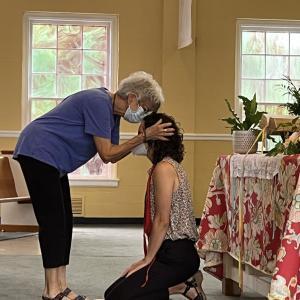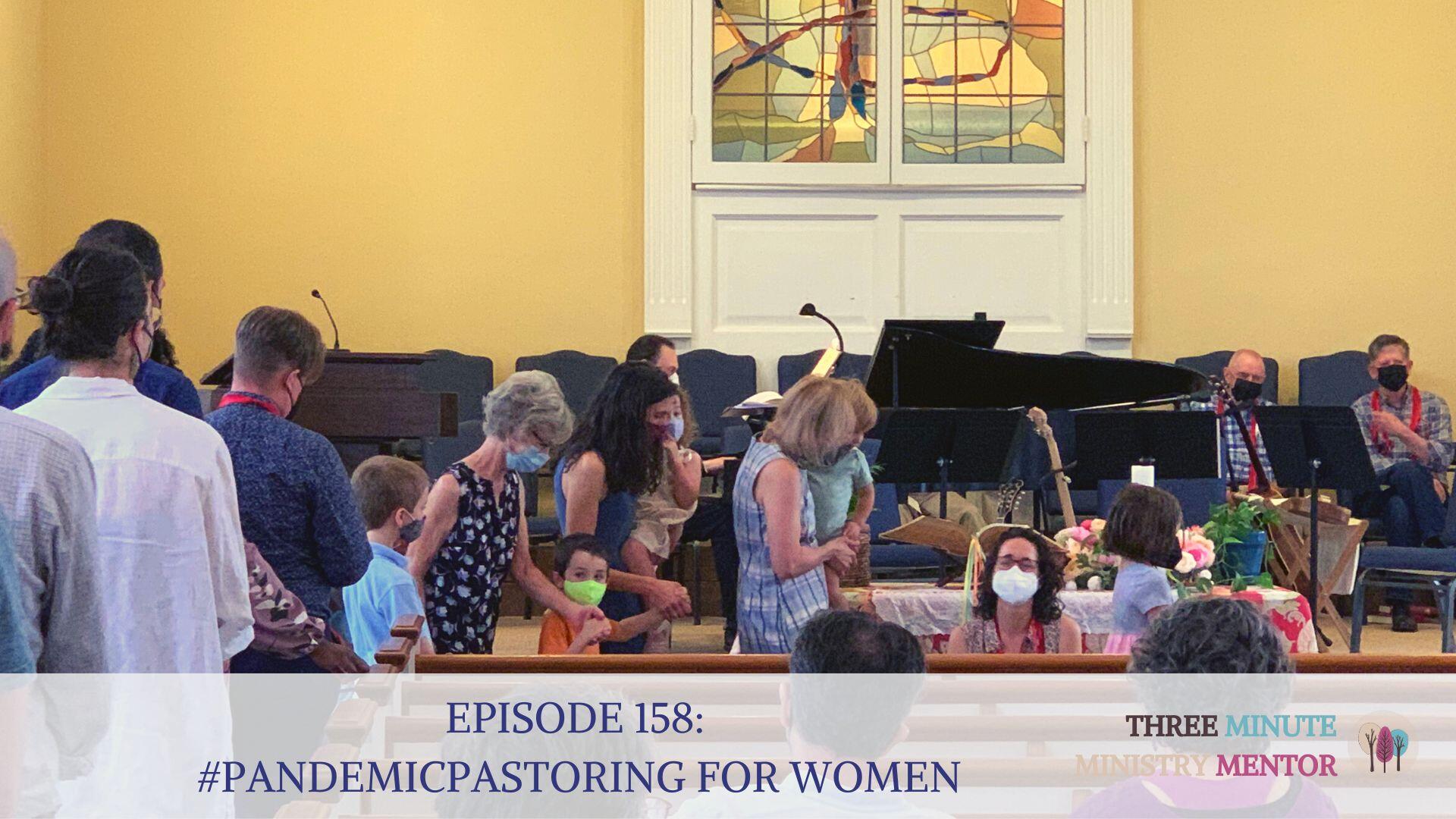What do we know about #PandemicPastoring and women? How has it impacted clergywomen? How have lay leaders been crucial for keeping the church going?
Since the declaration of a global pandemic in March of 2020, I continue to be in touch with scores, even hundreds, of women in ministry. They have experienced a full range of life (and death) moments. And of course, they have been impacted by the Coronavirus pandemic in many, many ways. I am honored to hear and hold many of their stories. I’ve done that in my role as a friend, mentor and professor, and also as a researcher, interviewing and surveying recent seminary graduates, clergy, and volunteer church leaders.
Between June 2020 and April 2022, I surveyed and interviewed 108 men and women in ministry, both clergy and lay leaders, who are part of three different cohorts. Of the people in the study, 56 of them identify as women, 16 lay leaders and 40 clergy. Their stories are diverse and include both struggle and resilience. Women formulated narratives about the pandemic that they shared publicly. And they also told us more personal narratives that they only shared with a trusted few or with the promise of anonymity.
With their permission, I am including women’s stories in the #PandemicPastoring Report coming later this month. You can be among those first to see the report by signing up here. And please share the link with other people who also care about churches and their leaders.
Women’s Experience
Apart from the study, I know women who have completed the final demands of seminary and graduated without any fanfare with their MDivs. Some of them started residencies and others continued ongoing ministries. Still others struggled to find ministry callings that suited them.
I’ve heard from women who were worn down by the constant pandemic-fueled anxiety of their congregations. Women who changed jobs finding that walking families through organ donation of a loved one was less stressful than ICU chaplaincy. I learned about many of the familiar tales of sexism in the church, and the ways that pressures on women were multiplied by the pandemic.

I also know women who found very strong support through this long and difficult season. My own dear congregation, Glendale Baptist Church was recently recognized by Baptist Women in Women in Ministry for being a church of excellence. Both of my pastors are women. And the interns and residents at the church (all women since 2020) worked together with tremendous collegiality and compassion and collaboration with all church leaders. We ordained two recent divinity school graduates in 2022.
In fact, I’ve attended multiple online and in-person ordinations during these impossible times. And I felt compelled to write a blessing for new clergy answering a call to serve this broken and beautiful world. I am happy for you to borrow it. Just give credit and share the blessing with the ministers in your life who are entering into ordained ministry as pastors, chaplains, deacons, any and all roles of church leadership.
Women in the #PandemicPastoring Report
Among the women I surveyed and interviewed, I heard stories about women who . . .
- quit ministry without certainty about if or when they may return
- moved to a new city to find adequate school for their children giving up a dream job in ministry
- started new pastorates while meeting almost no one in their congregations in person
- are mothers and became utterly exhausted
- received congregational approval to work from home, but also went through long periods without any childcare
- felt the stress of the “sandwich generation,” helping her parents navigate a divorce while homeschooling children for much of 2020
- supported colleagues and pastoral staff in innumerable ways
- retired early to care for grandchildren so their parents could work
- experienced chaplaincy as nearly overwhelming and yet also made adjustments to continue meeting people in their need
- are lay leaders and in spite of extreme isolation gave invaluable support to keeping congregations connected, running, and caring for each other.
Sign up to read the full #PandemicPastoring Report later this month.
Another Kind of Great Resignation
The coronavirus pandemic revealed many things in the church and among its leaders. The “great resignation” became shorthand for the masses who left work and reconfigured careers during 2020–22. Others have aptly called it “the great renegotiation.”
One of the more disturbing things I’ve read since 2020 is a study that suggested when white people become aware of the disparities the pandemic revealed, it caused them to be less concerned and less empathic, less likely to take precautions related to Covid-19. This gives me pause in sharing the report and the stories of women and especially women and men of color.
This reaction is a particular kind of confirmation bias. Typically, that phrase means people go into a study and find what they’re looking for, they “confirm their biases.” But in this case, something else is at work. When a study reveals stories of disparities, which we know to be historically and persistently true, it seems that one effect is to inspire a kind of despair and resignation, rather than embracing knowledge for the sake of change. The confirmation of prior knowledge provokes hopelessness… Or a different kind of great resignation.
In the end, I think it is critical to share the report and all the holy mess, complexity, despair, and resilience. Because having the messy and complex stories of people is more helpful in the end. It helps us all feel less alone in our experiences. And clearly it can become inspiration and motivation for changing the conditions of the church and its leaders. God knows the world still needs both.




